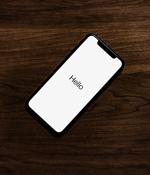Security News

Apple is inviting security researchers to apply for the Apple Security Research Device Program again, to discover vulnerabilities and earn bug bounties. In the intervening years, participating researchers have identified 130 security-critical vulnerabilities and have indirectly helped Apple implement security improvements in the XNU kernel, kernel extensions, and XPC services around the system.

Apple announced today that iOS security researchers can now apply for a Security Research Device by the end of October. The company added that iPhones provided through the Security Research Device Program should only be used by authorized people and never leave the premises of the security research facility.

Apple has released fixes for several security flaws that affect its iPhones, iPads, macOS computers, and Apple TV and watches, and warned that some of these bugs have already been exploited. Apple credits Kaspersky researchers Valentin Pashkov, Mikhail Vinogradov, Georgy Kucherin, Leonid Bezvershenko, and Boris Larin with finding this bug, which looks similar to the kernel vulnerability used to infect iPhones with TriangleDB spyware and also uncovered by the aforementioned team.

Apple has rolled out security updates to iOS, iPadOS, macOS, tvOS, watchOS, and Safari to address several security vulnerabilities, including one actively exploited zero-day bug in the wild. "Apple is aware of a report that this issue may have been actively exploited against versions of iOS released before iOS 15.7.1," the tech giant noted in its advisory.

We and our store and/or access information on a device, such as cookies and process personal data, such as unique identifiers and standard information sent by a device for personalised ads and content, ad and content measurement, and audience insights, as well as to develop and improve products. With your permission we and our partners may use precise geolocation data and identification through device scanning.

There are ways to unlock your iPhone even without the right passcode, but you'll need a PC with iTunes or a Mac with Finder. Apple offers ways to access your iPhone without the passcode, but you'll have to put it into recovery mode.

The second-ever Apple Rapid Security Response just came out. The last point above is surprisingly important, given that Apple absolutely will not allow you to uninstall full-on system updates to your iPhones or iPads, even if you find that they cause genuine trouble and you wish you hadn't applied them in the first place.

Today, CISA ordered federal agencies to patch recently patched security vulnerabilities exploited as zero-days to deploy Triangulation spyware on iPhones via iMessage zero-click exploits. The attacks started in 2019 and are still ongoing, according to the company, and they use iMessage zero-click exploits that exploit the now-patched iOS zero-day bugs.

Mobile device backups contain a partial copy of the filesystem, including some of the user data and service databases. The timestamps of the files, folders and the database records allow to roughly reconstruct the events happening to the device.

The Moscow-based cybersecurity company Kaspersky says iOS devices are being targeted by a previously unknown malware. The attack begins when the targeted iOS device receives a message via the iMessage service.